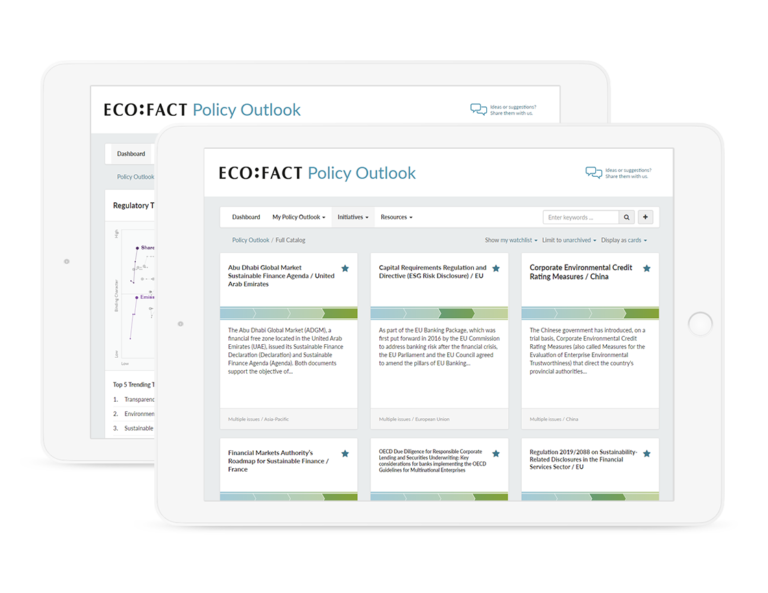Business & Human Rights: What Should Be on Financial Institution’s Radar?
In the last few months, the intersection of business and human rights has seen rapid change, in particular, there have been developments of interest to the financial sector. Therefore, this week we would like to bring your attention to four important topics:
Human rights as a key element of the EU Sustainability Taxonomy and the EU definition of sustainable investment
Although the majority of the initiatives supporting the EU Action Plan on Sustainable Finance target environmental and climate-related issues, human rights compliance is considered a minimum requirement. For instance, for an activity to be considered within the scope of the EU Sustainability Taxonomy, it is expected to comply with social safeguards as defined by the UN Guiding Principles on Business and Human Rights as well as the OECD Guidelines for MNEs.
Mandatory due diligence laws
Recently the first complaint filed under the French Duty of Vigilance Law was levied against Total. In Switzerland, parliamentary debates related to the Responsible Business Initiative have reached a critical point and currently, there are three possible outcomes on the table. Developments are also expected in Germany as the government will define a course of action on due diligence requirements by mid-2020.
Issuance of specific guidance by international organizations
In the last week of October, the OECD published due diligence guidance to advise financial institutions on how to integrate human rights issues (as well as environmental) into corporate lending and securities underwriting activities for both public and private placements. In addition, the OECD announced that it will start working on a similar guidance focusing on project and asset-based finance.
Algorithms & human rights
Last week, the US Department of Financial Services announced that it is launching an investigation into whether the algorithms used by Goldman Sachs in its Apple Card discriminate against individuals based on their gender or any other protected designation (e.g. race). This reinforces what we mentioned in 2018, that in the near future, financial institutions “may be expected to ensure and demonstrate [to regulators] that their algorithm-based models and artificial intelligence systems do not embed discriminatory patterns when determining the risk profile of transactions”.
 All posts
All posts Contact
Contact



